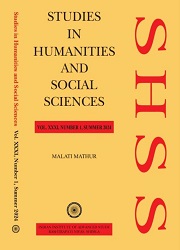The Tradition of equine Veterinary Literature in Pre-Colonial and Colonial India
The Writing of Faras-nama Literature
Keywords:
animal-medical-wisdom, equine, East India Company, farasnama, horse, knowledge, medical-culture, salotri, equine-veterinaryscience, vernacularizationAbstract
The history of veterinary science and animal-medical-wisdom in relation especially to horses, has largely remained unexplored under the social history of the medical sciences in India. However, the concern for medical health of the horses was a primary focus amongst animal healers and the writers of the 17th century faras-nama, and also the translations of theses texts in the 18th century. These texts were popular not only among physicians but also amongst the
state authorities because animal-medical-wisdom and the associated scientific knowledge was an important part of administrative concern. The surveillance of horses and their health remained the state’s concern under the Mughals, and even continued under the English East India Company rulers, while both maintaining strong cavalry. The state provided patronage and protection to veterinary profession, veterinary education and veterinary writers of the equinemanuals i.e., the faras-namas, the treatise on the horses, throwing light on the rearing, caring, healing and management of the horses is, therefore, useful. This paper argues that people skilled in knowledge of equine veterinary sciences enjoyed aristocratic prestige as ‘men of horses’ under the Mughals, but, the subsequent vernacularization of the ‘faras-nama’ in the 18th century made highly specialised equine-veterinary-knowledge as part of common people’s culture.



